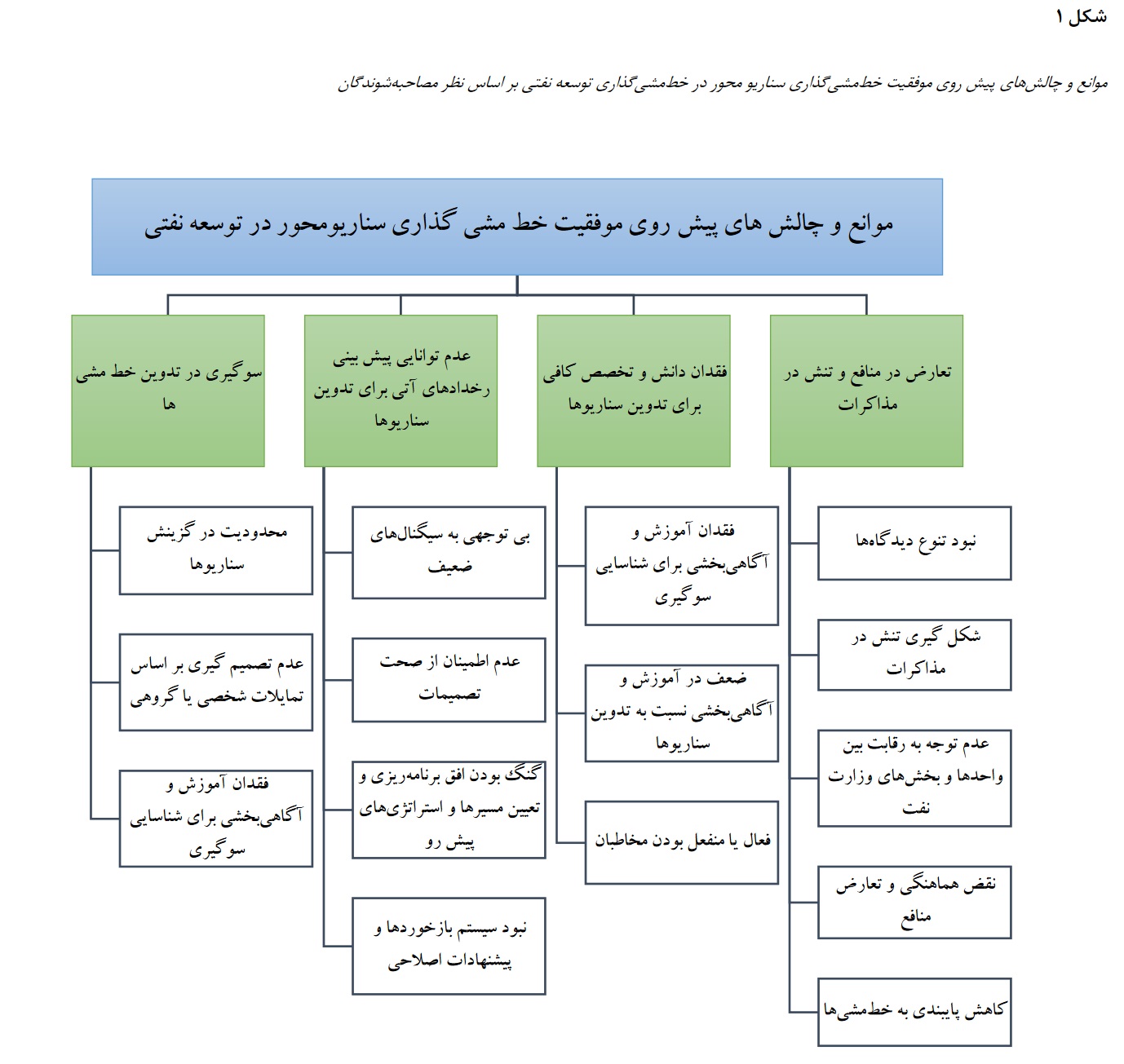Barriers and Challenges in Scenario-Based Policy Making for Oil Development Policies
Keywords:
Scenario-based policy making, oil development, bias, predicting future events, knowledge and expertiseAbstract
The objective of this study is to identify and analyze the barriers and challenges facing scenario-based policy making in the context of Iran's oil development policies. This research examines the sources of bias, the ability to predict future events, the level of knowledge and expertise available for scenario development, and the conflicts of interest and negotiation tensions. This qualitative study utilized semi-structured interviews and the Delphi technique to collect data. Initially, Delphi questionnaires were distributed among 20 senior managers from the Ministry of Oil and academic experts. Data were collected through semi-structured interviews and analyzed using NVivo software. The Delphi technique was conducted in three stages to achieve theoretical saturation. The findings of this study revealed four main concepts as barriers and challenges to scenario-based policy making in Iran's oil development: bias in policy formulation, inability to predict future events, lack of sufficient knowledge and expertise for scenario development, and conflicts of interest and negotiation tensions. These challenges can lead to reduced quality and effectiveness of policies. The results indicate that identifying and managing biases, improving predictive capabilities, increasing knowledge and expertise in scenario development, and managing conflicts of interest and tensions can enhance the scenario-based policy making process. Educational and awareness programs, feedback systems, and predictive analysis can be effective in this regard.
Downloads






















